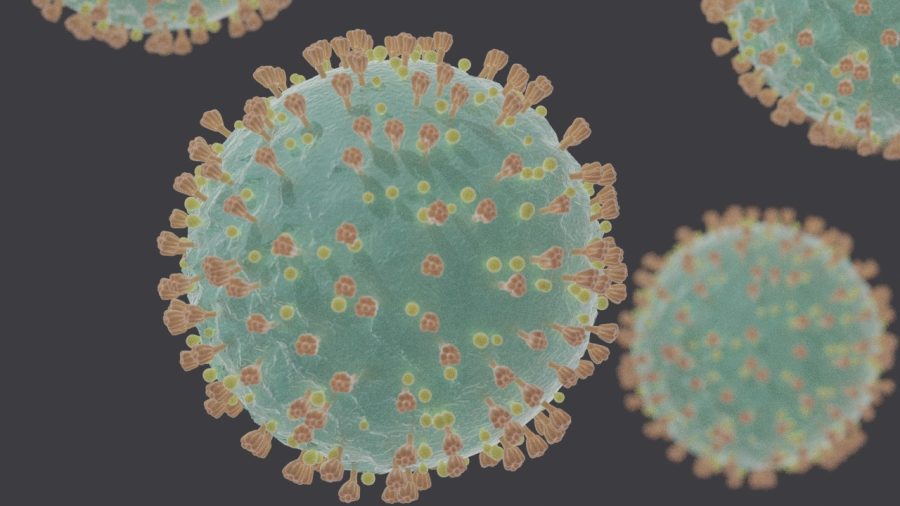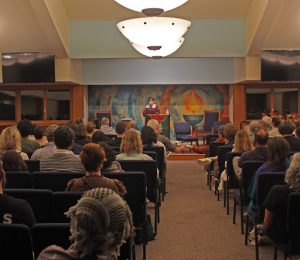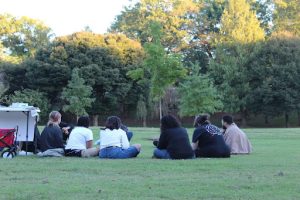University will require bivalent booster shot: email
The university will make a decision about requiring the influenza vaccine by Oct. 1
As of Monday night, the university has 30 active cases of COVID-19.
August 15, 2022
On Aug. 4, the university announced its updated COVID-19 policy for the Fall 2022 semester. Many of the protocols will remain the same as when students left last semester, with the exception of one new requirement — the bivalent booster shot.
Public health advisors have recommended the university require this shot to strengthen herd immunity among the Wake Forest community. This new booster targets both the Omicron variant and the original COVID-19 strain in a single shot and is available to individuals four months after their first booster shot. More information about the requirement will be released as availability is determined.
Like last academic year, new undergraduate and graduate students have been required to submit documentation of FDA or WHO-approved primary vaccinations as well as a single booster by July 1, 2022. Faculty and staff must follow suit and maintain full vaccination status. Those aged fifty or above are encouraged to receive a second booster shot.
By Oct. 1, the university will determine if the influenza vaccine will be required for the 2022-2023 academic year. If required, proof of vaccination will be needed by Monday, Nov. 28. Students will be able to receive a flu shot at Student Health Services and student-specific clinics. Human Resources plans to schedule six flu shot clinics for faculty and staff on and near the Reynolda campus between Sept. 20 and Oct. 12.
Alongside vaccination protocols, the email discusses the use of masks within the endemic response plan. While the university recognizes the effectiveness of masks in the mitigation of COVID-19 risk, they are still not required. However, faculty and staff may request that their students and colleagues wear masks. The email urges the Wake Forest community to be respectful and considerate of masking requests.
The university’s health plan also includes a new response model to COVID-19 outbreaks. Students are encouraged to test for coronavirus within 72 hours before arriving on campus. Those who test positive must isolate until they meet the current criteria specified by the FDA for release from quarantine.
During the semester, if a student who lives in a residence hall tests positive for COVID-19, they are advised to isolate in their on-campus residence or return home at their own expense to complete isolation. Those who choose to remain on campus will be aided by campus resources while they recover. Roommates of students who test positive for COVID-19 have the option to relocate to another room until the isolation period ends.
“Wake Forest will approach our isolation protocols in much the same way a household would provide support to a family member with an illness,” the email reads.
Through preventative maintenance, Facilities and Campus Services have also been working to prepare the Reynolda campus for the upcoming semester. The department has improved and monitored ventilation systems in buildings across campus and frequently seeks information from industry sources to manage environmental risks.
Vice President for Campus Life, Dr. Shea Kidd Brown, expressed her optimism regarding the upcoming semester and health protocol.
“The most significant change is that we have shifted from crisis mode to considering campus health strategies that are much more embedded in existing campus functions,” Kidd Brown said. “I look forward to a more routine semester where students can more fully embrace the campus experience. This fall, it will be important that we reflect on what we have learned during this challenging time and reaffirm our commitment to upholding our motto, Pro Humanitate.”
These changes to the COVID-19 protocol are governed by Wake Forest’s COVID-19 policy, which explains basic principles regarding coronavirus response guidelines. The university will continue to communicate CDC recommendations for COVID-19 and other public health threats. Questions surrounding COVID-19 policy updates can be directed to [email protected].












